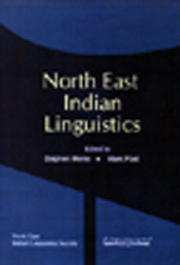14 - Doing Fieldwork on the Singpho Language of North Eastern India
from Language Description and Language Endangerment
Published online by Cambridge University Press: 26 October 2011
Summary
Introduction
The increasing concern for the gradually disappearing languages of the world has resulted in some organized and well thought out linguistic activities aimed at the documentation and if possible preservation of those languages. Linguistic fieldwork on smaller, less well described, languages is thus one of the most important activities for linguistics and it is unavoidable if we are not to lose a great deal of information about the linguistic diversity that still exists in the world. As Morey (2005:1) put it, ‘The work of documenting the undocumented languages of the world is as urgent a challenge as any in the whole range of scholarship.’
Information collected from the field by the field linguist can be the basis of descriptions of the particular language. Rich grammatical descriptions can be written provided that enough natural linguistic data has been collected. Such data can also be the basis of materials for language maintenance and preservation.
This paper presents a brief report on field work done in the Singpho speaking areas of the North Eastern region of India. Linguistic field work can involve considerable practical problems that have to be confronted by the linguist in the field. Some of these problems encountered in the course of the fieldwork in the North East Indian region will be presented in this paper.
This paper is a result of my involvement as a research assistant in the project entitled A comprehensive documentation of the Turung and Singpho languages of Assam, directed by Stephen Morey and funded by the Endangered Languages Documentation Programme, School of Oriental and African Studies, London (www.hrelp.org).
- Type
- Chapter
- Information
- North East Indian Linguistics , pp. 243 - 254Publisher: Foundation BooksPrint publication year: 2008
- 1
- Cited by



